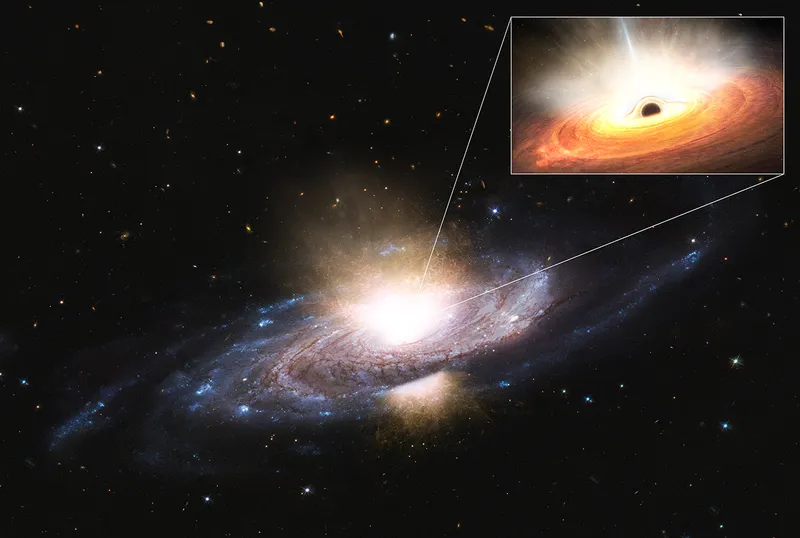We all have bad days, committing to a monumental strop here, or a display of our anger there, but have you ever had a tantrum so bad that you threw an entire galaxy off balance?
Well, that’s what has happened thanks to one particularly badly behaved black hole observed by the XMM-Newton space observatory.
Zoom in on every large galaxy and you’ll find a supermassive black hole, drawing in gas from its surroundings with its immense gravity. As the gas spirals inwards, it is crushed into what is known as an accretion disc – a flat disk of gas that orbits a massive central body.
Over time, the gas closest to the black hole passes the point of no return, essentially getting chewed up by gigantic gravitational forces. However, there’s a twist here. Black Holes only consume a fraction of this gas, spitting the rest of it back out into space.
undefined
Occasionally, just like the mischievous black hole the XMM-Newton spotted, a black hole doesn’t just spit out a bit of gas, it spits out its entire meal over the course of several hundred days. Gas in the accretion disc gets flung out in all directions at such high speeds that it completely clears out the surrounding interstellar gas.
The effects of this are massive, the gas blasting an area through space where new stars can no longer form. This completely changes the landscape of the surrounding galaxy that the black hole is found in.

Normally, it is only black holes with extremely bright accretion discs that throw gas back out. These brighter discs more typically feature faster ‘black hole winds' that launch the gas back out.
“It is very uncommon to observe ultra-fast winds, and even less common to detect winds that have enough energy to alter the character of their host galaxy,” said co-author Elias Kammoun, an astronomer at the Rome Tre University in Italy.
“The fact that Markarian 817 [the galaxy in question] produced these winds for around a year, while not being in a particularly active state suggests that black holes may reshape host galaxies much more than previously thought”.
For scientists, this research opens our understanding of how black holes and the galaxies around them influence each other. Many galaxies appear to have large regions around their centres where few new stars form. This could be explained by black hole winds clearing out the star-forming gases.
Read more:
